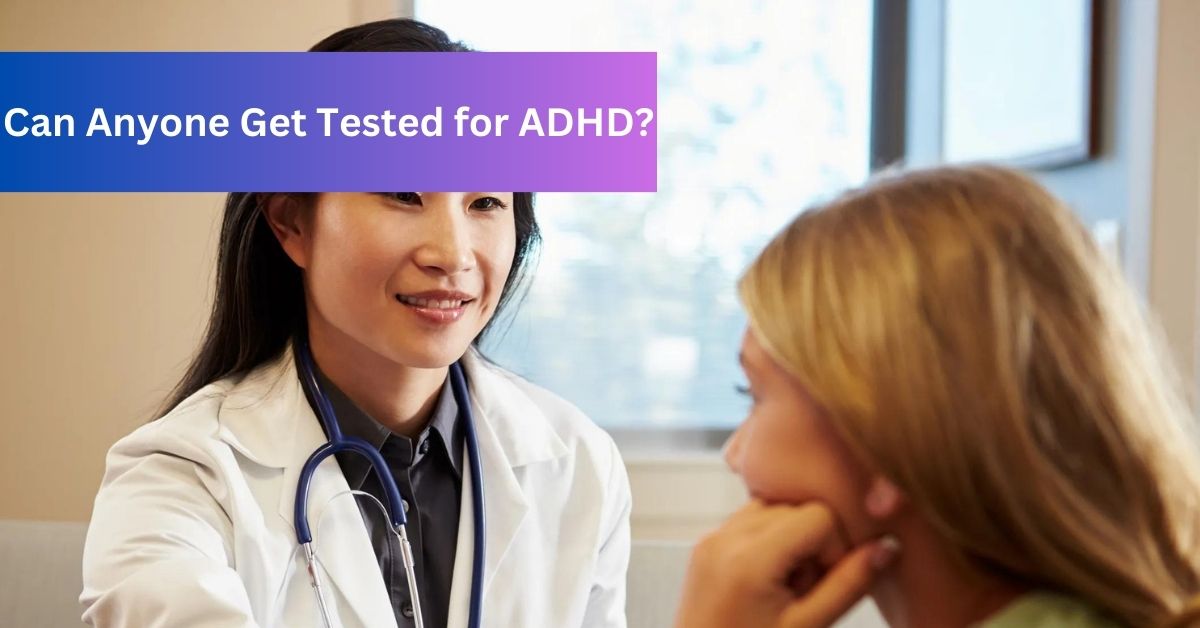Can Anyone Get Tested for ADHD?
Diagnosis for attention deficit hyperactivity disorder (ADHD) comprises behavioral assessment, intelligence testing, basic achievement screening, and other evaluations. Qualified health professionals use multiple assessments to determine if you meet the criteria for ADHD.
The U.S. Diagnostic and Statistical Manual of Mental Disorders (DSM), sets the official standards for ADHD testing. Professional testing can help you determine if your symptoms directly stem from the condition, allowing you to get treatment.
ADHD Diagnosis Criteria
Anyone can visit a qualified psychologist, psychotherapist, psychiatrist, neurologist, or physician to diagnose ADHD. A diagnosis is necessary if the ADHD symptoms are present during childhood and interfere with daily functioning.
The symptoms must also be present in multiple settings, like home, school, and work, and not explainable by other mental health conditions.
ADHD symptoms affect attention, focus, organization, emotional regulation, and impulse control. Physicians often diagnose ADHD during childhood years, but many people seek help as adults.
Qualified healthcare professionals can determine the following symptoms of ADHD: inattentive, hyperactive or impulsive, and combined. Inattentive ADHD is the most predominant symptom and causes difficulty with organization and task completion.
Hyperactive or impulsive ADHD makes it difficult to remain still or focus for long hours. People with hyperactive ADHD tend to be highly impulsive and have trouble following instructions. Combined ADHD presents the symptoms of both inattentive and impulsive ADHD.
ADHD Diagnostic Systems
ADHD testing involves an intelligence assessment, basic achievement screening, behavior analysis, direct assessment of attention, and memory and processing speed screenings. Behavior assessment for children looks for aggression, conduct issues, hyperactivity, anxiety, depression, learning issues, and attention problems.
The psychologist can use teacher and parent surveys to assess behavioral and social issues like withdrawal, physical complaints, and aggression. Variable attention tests assess the child’s ability to pay attention to non-preferred tasks.
Healthcare professionals can also use the Conners Rating Scale to evaluate symptoms related to school, behavior, and interpersonal functioning. The scale helps to determine how ADHD symptoms impact your home life, academics, and relationships.
A Conners Adult ADHD Rating Scale is used to assess ADHD in adults. Other tests include the self-response scale — a self-report test qualified practitioners use to evaluate ADHD in adults. Healthcare professionals can also measure brain wave patterns in children using the Neuropsychiatric EEG-Based Assessment.
ADHD Testing Candidates
According to the DSM criteria for ADHD, children below 17 must have six or more symptoms present. Adolescents 17 and older and adults must have five or more ADHD symptoms. The symptoms must be present for at least six months to suggest an official ADHD diagnosis.
Healthcare professionals can also suggest a diagnosis if the symptoms are disruptive or inappropriate for your developmental level. Here are the primary symptoms of inattentive and hyperactive-impulsive ADHD in children and adults:
Inattentive ADHD Symptoms
People with inattentive ADHD often make careless mistakes in school or at work and have trouble paying close attention to details. Other symptoms include difficulty following instructions, finishing tasks, organizing activities, and listening to direct communication.
You may get distracted easily, forget daily tasks, or lose items necessary for the tasks. Inattentive ADHD can also make you reluctant to do tasks that require mental effort for prolonged hours.
Hyperactive ADHD Symptoms
Impulsive or hyperactive ADHD symptoms include fidgeting, squirming, and difficulty sitting still. Children with hyperactive ADHD often run about or climb things, while adolescents and adults experience intense feelings of restlessness.You may struggle to participate in play or leisure activities quietly or find yourself talking excessively. Other symptoms include trouble waiting for your turn and intruding or interrupting other people’s conversations or activities. If these symptoms are impacting daily life, seeking professional support, such as ADHD Treatment Baltimore, can provide effective strategies and guidance for managing them.
ADHD Symptom Severity
Healthcare professionals can indicate the severity of ADHD as mild, moderate, or severe, based on the symptoms and impairments. Mild ADHD involves minor impairment in functioning with minimal symptoms that meet the DSM criteria for diagnosis.
Moderate ADHD also features minimal signs with significant impairments. Severe ADHD features more symptoms than minimally required for diagnosis and more significant impairments in functioning.
Seek Professional ADHD Diagnosis and Counseling
If you experience disruptive symptoms that may stem from ADHD, you can visit a psychologist or qualified physician like those available at Serenity Mental Health Centers for diagnosis.
Your healthcare professional can use cognitive behavioral therapy, acceptance and commitment therapy, dialectical behavior therapy, or other coaching therapies to address the symptoms.
Contact a qualified practitioner today for professional ADHD testing and treatment to avoid the adverse disruptions of unaddressed ADHD.





